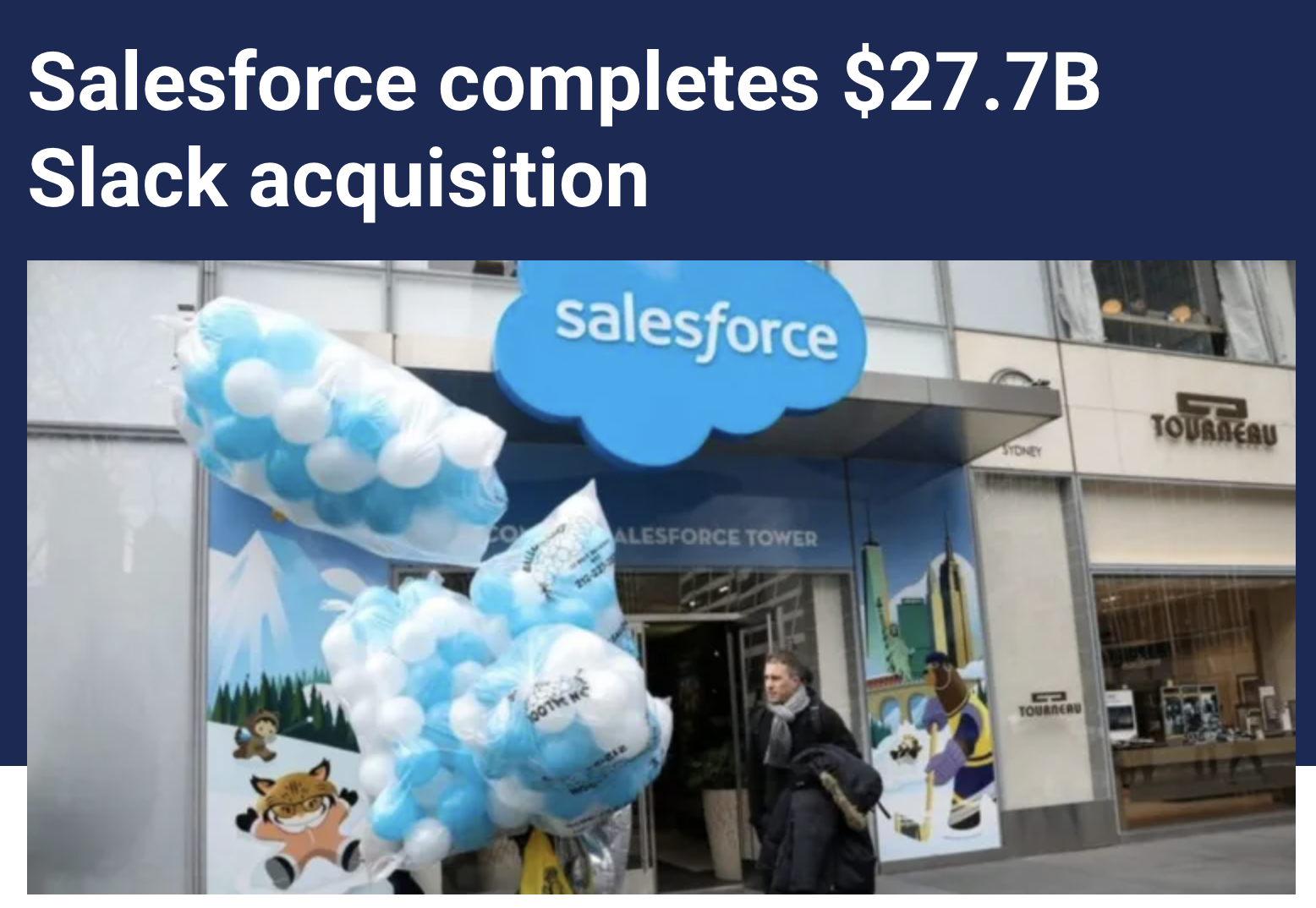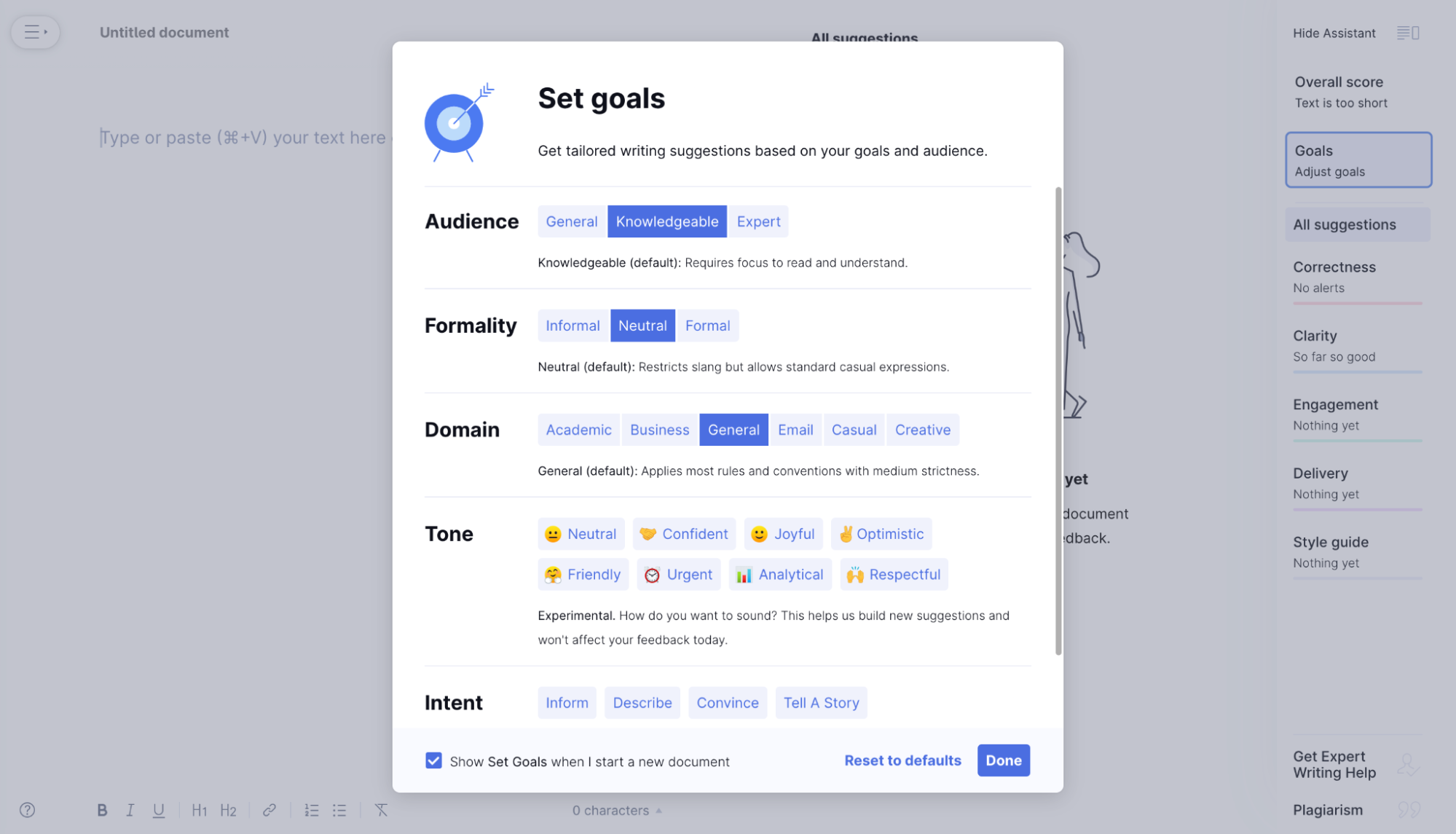Article's Content
Welcome to Volume 64!
It’s a wrap! 🍾🍾🍾
Well, almost a wrap. We have a few hours to go.
2022 is now half a page away, and I feel like this year went by pretty fast.
I still remember when I turned 26 in January, sealed the deal with my secret crush (Foundation) in May, and fell in love with B2B news.
Writing to you every week, on behalf of the Foundation team, has been one of my most treasured moments in 2021.
For everyone who showed every week to read our content, engaged it, shared, added your unique voice, and gave us a shout-out, we appreciate you. Looking forward to diving deeper and bringing more exciting B2B SaaS news and insights in 2022.
2022 will surely be a great one for all of us.
To end the year with a reflective bang, I want to recap some of the groundbreaking B2B decisions this year and how those decisions will impact the industry in 2022.
Now, here’s a peek at what’s to come in this piece:
- 2021 Poured Heavy Acquisition Deals
- How Meta Will Shape B2B in 2022
- Grammarly Became A Decacorn In 2021
2021 Poured Heavy Acquisition Deals
This year was full of surprise rainstorms for the B2B industry.
There was Jack Dorsey’s sudden breakup with Twitter, Square and Facebook’s new identities, tons of companies reaching unicorn status, and heavy acquisitions deal showers.

Let’s run through some of the biggest acquisition deals in 2021:
- Salesforce Acquired Slack For $27.7B
- Intuit Acquired Mailchimp For $12B
- Amazon Acquired MGM For $8.45B
- Hubspot Acquired The Hustle
- Zoom bought Five9 for $14.7B
- iContact acquired Moz
- Attentive acquired Privy
- And more…
Dealmakers predict that 2022 will be another very strong year.
So brace for impact.
An important lesson to learn from these successful acquisition deals is the value of digging the work.
All of these companies once had zero revenue, profit, and valuation. These companies were once ideas in people’s minds.
However, the founders of these companies invested time, resources, and effort in growing the company from the ground up until it became worth billions of dollars.
In 2022, one of the keys to building a thriving company, whether or not you want to sell, is to dig the work and show up every day.
Go the extra mile to understand your customers. Listen more to your customers. Learn from them and incorporate feedback. Stay consistent in grinding and invest in your company’s growth for the long haul. That’s how you’ll succeed and thrive for years to come.
KEY TAKEAWAYS
- 2021 saw billion-dollar acquisition deals, with Salesforce leading the way as it acquired Slack for $27.7 billion dollars.
- Dealmakers predict that 2022 experience a heavier downpour of acquisitions
- The secret to building a thriving company is to dig the work and show up every day.
How Meta Will Shape B2B In 2022
After self-identifying as Facebook’s CEO for 17 years, Mark Zuckerberg stunned the whole world with his new identity—the CEO of Meta, Facebook’s new parent company.

With the numerous privacy complaints against the company, one would wonder why Zuckerberg and his team decided to rebrand in the middle of a myriad of legal battles.
A closer look reveals what Facebook is planning with Meta. They have made at least 21 acquisitions according to Pitchbook, with most of these brands specializing in gaming and virtual reality.
Zuckerberg has invested billions of dollars into building and dominating the metaverse through acquisitions and manpower to do the work. In this evolving digital landscape, where virtual environments like the metaverse are gaining prominence, understanding virtual data room pricing is equally important for businesses to securely manage and share critical data in these new virtual spaces.
Now he wants to own the word, Meta.
This year alone, he has spent at least $10 billion to advance his ambition to let users show up in a virtual space as a full-bodied avatar to interact with each other.
Of course, this simple name change could be a somewhat obvious tactic to outrun government regulators. And distance itself from Facebook’s problematic reputation over the past few years.
Or it could be the start of something revolutionary that would change business as we know it.
The COVID pandemic introduced a new way of collaborating with colleagues from across the globe. Perhaps, Meta’s intentions to reshape human and business interaction would come with lots of perks.
For now, it’s unclear how Zuckerberg’s ambition will shape the B2B industry, however, we can’t deny it’s an audacious move that Silicon Valley is well known for.
KEY TAKEAWAYS
- Mark Zuckerberg stunned the whole world with his new identity—the CEO of Meta, Facebook’s new parent company.
- Within the past three years, Facebook has acquired at least 21 brands, most of which are associated with the gaming and virtual reality industry.
- Meta could be the start of a collaboration revolution in the B2B space.
Grammarly Quietly Became A Decacorn
A decacorn is a company that has valued above $10 Billion dollars.
In the last quarter of this year, Grammarly joined the decacorn club after a $200M funding round that boosted its valuation to $13B!
The brand owes its success to a host of well-executed strategies, including a well-defined and well-executed content strategy.
First, Grammarly outlined its unique value proposition, which is, improving communication. Then, the company defined its audience segments instead of focusing on one demographic alone.
Even though Grammarly targets professional writers, you can see from the app’s sophisticated personalization and suggestions that it caters to students, entrepreneurs, professionals, and enterprise companies differently.
Rather than target one segment, Grammarly learns from each audience segment behavior and iterates their product to ensure their different needs are met.
For example, the “set goals” feature lets users set goals for a particular piece of writing so Grammarly can offer tailored suggestions.

A student using Grammarly or online study material like StuDocu for a research paper will have different goals from a freelancer trying to send an email to a client. With this feature, both users can select the intended audience, formality, domain, tone, and intent.
Everyone’s satisfied at the end of the day.
You can also see this thoughtfulness displayed on Grammarly’s blog. The articles on the blog address different pain points the different audiences have: their desire to improve their writing, edit like a pro, and communicate better.
The content marketing lesson here is the importance of creating and serving different customer personas.
Focusing on a single customer persona in 2022 will be detrimental to your brand’s health, especially if you serve more than one customer segment.
The secret is to design a content strategy that addresses multiple audiences. It can be a long, tedious process; however, it’s a worthy investment that will help you reach, engage, and connect better with each of your audience segments.
KEY TAKEAWAYS
- Grammarly is now valued at $13B, with its latest funding round worth $200M.
- The digital writing assistant partly owes its massive success to its well-defined content strategy.
- Focusing on a single customer persona in 2022 will be detrimental to your brand’s health, especially if you serve more than one customer segment.
OTHER NEWS OF THE WEEK:
Skillsoft acquires Codecademy for $525 million to scale the ed-tech company offerings.
Short video app, Triller is set to go public via a reverse merger with video-tech company SeaChange International.
TikTok ends 2021 on a roll. They are ranked the third largest social network.
HIRING BRILLIANT B2B MARKETERS:
BRAIN FOOD OF THE WEEK:
Last week, Ross shared an insightful, and hilarious, post on Linkedin.
If you’ve ever wondered if Ross can hit the high notes or carry a tune, now would be a great time to find out.
Tis’ the season to be jolly, after all.
On a serious note though, if you haven’t watched the video, you should check it out.
The Holidays are the most dangerous time of year. That’s when CEOs, VPs, and CMOS around the world take a break from work to “relax”.
They binge-watch all the videos and content they’ve been bookmarking all year long. That’s when they start to get ideas like changing their weeks-old marketing strategy.
One key lesson that I learned from Ross’ update is the power of consistency.
Consistency is an underrated marketing strategy. While it’s important to embrace change and pause when things aren’t working out, it’s not okay to switch up an entire strategy without giving it a chance.
Here’s advice from the Distribution King himself: “Give your strategies, tactics, and teams the time required to see a specific effort through.”
You can only build a competitive edge in the SERP through consistent blogging. The same goes for building a thriving personal brand on social.
It all takes time and effort.
So, don’t switch up your strategy just yet. Give it time. Put in the work. Evaluate your efforts. Identify growth opportunities and keep iterating.
I’ll leave you with Ross’ final words: “I urge all the CEOs and CMOs out there to be cautious with the desire to switch things up just because you heard a new idea on a podcast or a new tactic on Linkedin.”
Give your strategy time.
If you still haven’t watched the full video, here you go.
TWITTER THREAD OF THE WEEK:
7 ways to improve your storytelling by Ross Simmonds
IN CASE YOU MISSED SOME OF OUR GREATEST HITS:
- The Power of Treating Content as an Investment: The $21M Blog Post
- How Salesforce Built the Largest Partner Ecosystem
- How 5 Simple Words Pushed Figma To A $10B+ Valuation
- How Adobe & Docusign Compete To Establish an SEO Moat
WHAT WE’RE WIRED INTO THIS WEEK 🎧:
These round-ups are brought to you by me, Jessica O., every week ✌!
Stay up to date with all of our latest findings by subscribing to our newsletter today. Signing up also gives you early access to Ross’ Tuesday essay full of exclusive industry insights.
Quick, do it now before the next drop!







